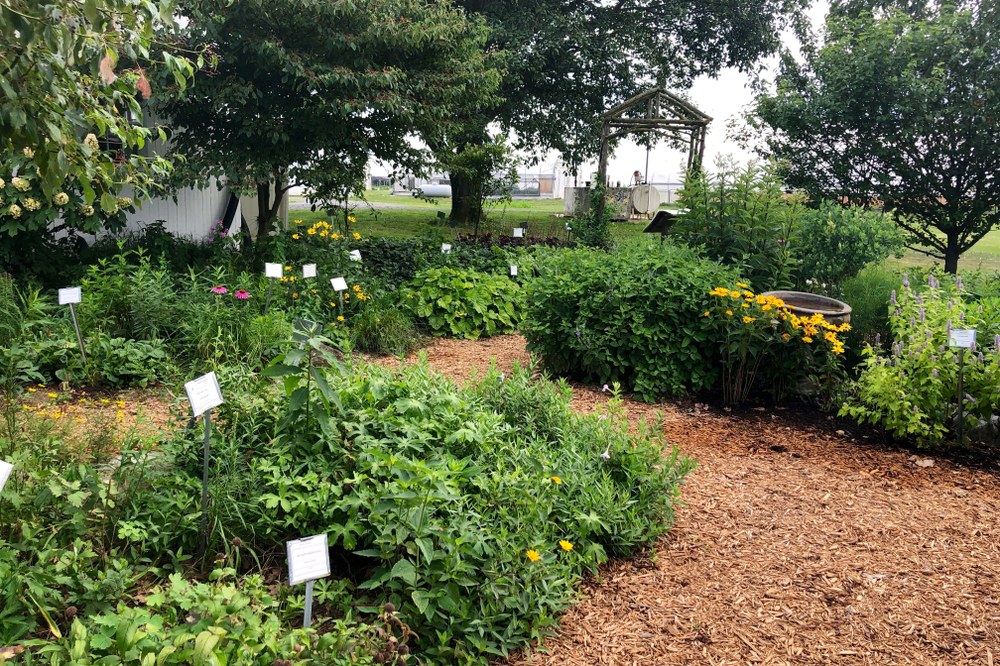Posted: January 15, 2021
Gardening involves things that can be done routinely at the same time every year. This is the first of a series of timely tips. Our focus is on Native Plant Gardening, will include some general gardening as well.

Photo credit: Kim Frey
Prepare for the year of gardening ahead of us.
Winter is the best time to pause, reflect, and prepare for the year ahead. Review the previous year's gardening. What do you want to change, add, or delete Do you want a theme garden such as for butterflies or pollinators? Study the "skeleton" of your winter landscape and try to picture where you would place a pathway, arbor, or other improvements.
Start a garden journal.
Record your ideas and plans plus garden activities as you do them.
Increase knowledge.
Read, look at gardening magazines. Increase native plant knowledge. Make sketches of your garden, whether existing or newly planned. There is a wealth of information on the Penn State Extension website. You can search for anything there such as webinars, articles, and more. See Home Gardening.
Order seeds.
If you plan on growing some of your native perennial plants with seeds, it is time to order them.
Winter weeds.
On mild days, remove winter weeds of chickweed, hairy bittercress, and wild onions. Be careful not walk on wet or saturated soil, which can harm soil and even plants.
Trees and shrubs should be pruned while still dormant and January is the perfect time.
Correct pruning promotes, encourages fruit and flower development. If you have tall branches (never stand on a ladder) or branches more than 2" in diameter call an ISA Certified Arborist. Flowering shrubs may be an exception to January pruning. See Pruning Trees and Shrubs and Pruning Flowering Trees and Shrubs.
Remove and dead or diseased wood.
Clean it up.
If you did not do so in the fall, gather your garden tools and give them a good scrub rinse off the dirt; sterilize them with alcohol or antibacterial wipes; sharpen the blades or have them sharpened at a gardening service or lawnmower shops that sharpen hand tools.
Hellebores: Christmas Rose and Lenten Rose are not native plants but are favorites of many gardeners. They flower in the cold winter and spring bringing a touch of color to your garden. They are susceptible to hellebore leaf spot. In January check the foliage for any black or brown foliage or stems. This caused by a fungus. Pull any leaves with spots and destroy them immediately. If plant leaves have already fallen, clear them from around the plant and destroy them. The infected debris will continue to infect the plants if left near them. Then enjoy the stunning flowers that make you wonder at the beauty and resilience of nature!

